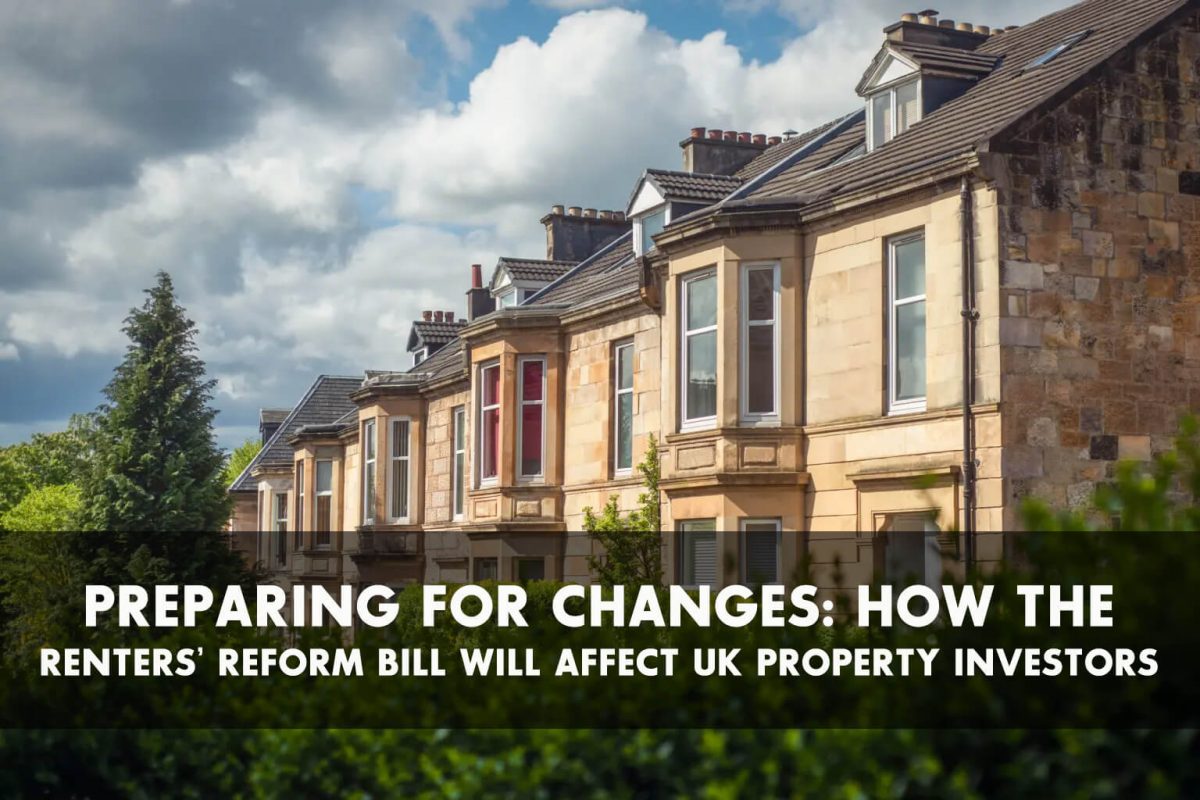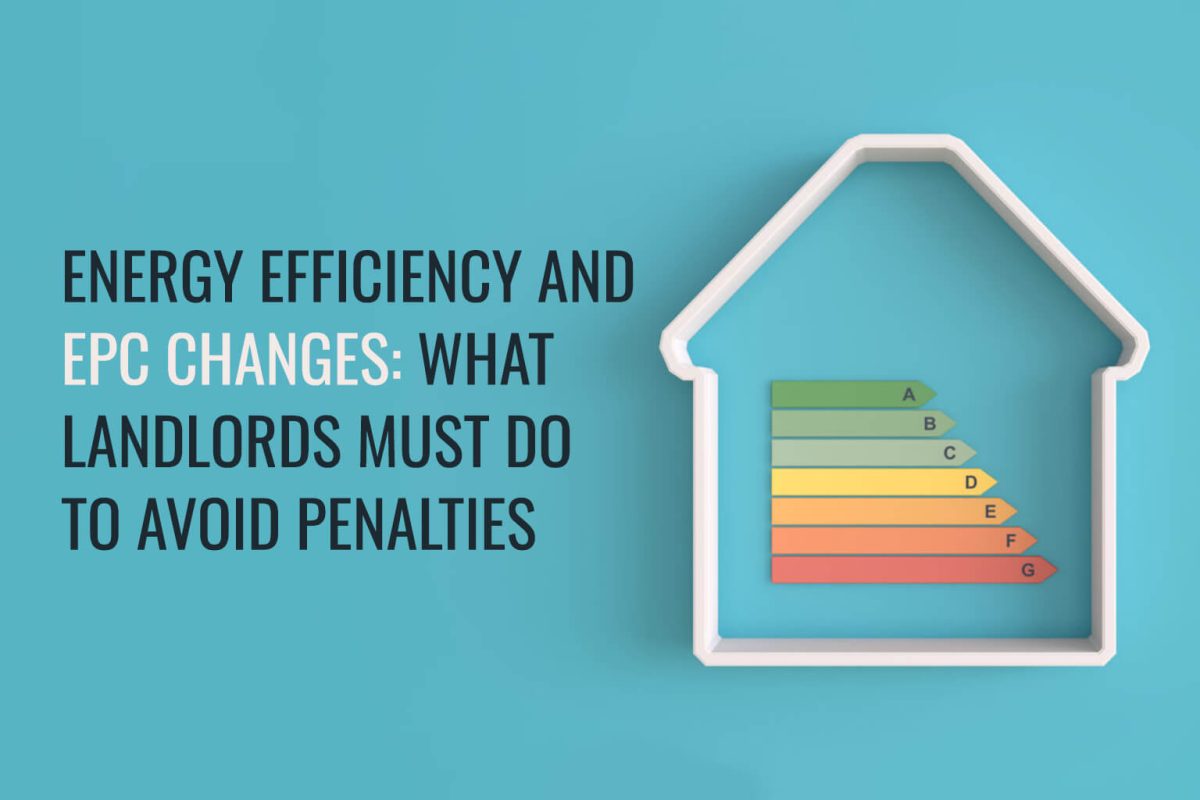As the effects of climate change continue to intensify, governments and industries worldwide are increasingly prioritising sustainability. In the UK, the property sector is no exception, with evolving climate change regulations and sustainability standards shaping the future of property ownership. Buyers, sellers, and estate agents in Bishops Stortford and beyond must now consider not only the financial aspects of the property but also how environmental legislation affects property value, energy efficiency, and long-term viability. The Growing Importance of Sustainability in Property Ownership Sustainability is no longer an option but a necessity in modern property ownership. Buyers are increasingly looking for...
Read MoreCategory: Estate Agents
Preparing for Changes: How the Renters’ Reform Bill Will Affect UK Property Investors
The UK rental market is undergoing a transformative period, with the Renters' Reform Bill set to introduce sweeping changes. For property investors, understanding the potential impacts of this legislation is crucial for navigating the evolving landscape. This blog will explore the key elements of the Renters' Reform Bill and how it may affect UK property investors, including those in smaller towns like Macclesfield. We will also discuss how working with estate agents in Macclesfield can help investors stay compliant and adjust their strategies effectively. What is the Renters' Reform Bill? The Renters' Reform Bill, introduced as part of the UK...
Read MoreBuilding Smart Homes: Why Technology Is Key to Long-Term Property Success
The concept of a smart home is no longer just a futuristic fantasy; it has become a defining trend in the modern housing market. With advancements in technology, more property buyers are looking for homes equipped with smart systems that enhance convenience, security, and energy efficiency. For estate agents in Clifton, staying ahead of this trend is crucial for advising clients on making the right decisions, whether buying, selling, or upgrading properties. In this blog, we’ll explore why building smart homes is key to long-term property success and how technology is shaping the future of real estate. What Is a...
Read MoreEnergy Efficiency and EPC Changes: What Landlords Must Do to Avoid Penalties
As sustainability becomes a key concern in property management, energy efficiency is taking centre stage in the UK housing market. One critical aspect of this is the Energy Performance Certificate (EPC), which rates how energy-efficient a building is on a scale from A (most efficient) to G (least efficient). Recent changes to the legislation regarding EPC standards are creating new challenges for landlords, and those who fail to meet these regulations could face penalties. In this blog, we’ll explore the changes to EPC standards, what landlords must do to comply, and the potential penalties for those who don't. We will...
Read MoreThe Property Investor Show 2024: Everything You Need to Know
What is Property Investor Show 2024? The Property Investor Show 2024 is the UK's largest and longest-running exhibition focused on property investment, both in the UK and internationally. Scheduled for the 4th and 5th of October 2024 at ExCeL London, this event brings together a broad audience, including investors, landlords, homebuyers, and other property professionals, to explore the latest trends, opportunities, and insights in the real estate market. Event Details and Schedule Dates and Times: Friday 4th October: 10.00 am – 6.00 pmSaturday 5th October: 10.00 am – 5.00 pm Venue: ExCeL London, Royal Victoria Dock, 1 Western Gateway, London...
Read MoreEverything You Need to Know About The Property Investor Show 2024
The Property Investor Show: The UK’s Premier Property Investment Event The Property Investor Show is returning on 4th and 5th October 2024 at ExCeL London. As the UK’s largest exhibition for property investment, it’s the go-to event for anyone serious about investing in both UK and international property. Whether you’re an experienced landlord, a new investor, or simply curious about investment property, this is the event to attend. Key Event Details: Dates: Friday 4th October, 10.00am – 6.00pm | Saturday 5th October, 10.00am – 5.00pmLocation: ExCeL London, Hall Entrance N4, West EntranceTransport: Nearest station – Custom House (Elizabeth line and...
Read MoreThe Ultimate Guide to The Property Investor Show 2024
What is The Property Investor Show 2024? The Property Investor Show 2024 is the UK's largest and most comprehensive property investment event, taking place on 4th and 5th October 2024 at ExCeL London. It’s designed for property investors, landlords, home buyers, and professionals looking to learn, network, and explore the latest trends in UK property investment. Why Should You Attend The Property Investor Show 2024? Expert Guidance and Education: Access 80+ free seminars and live speaker sessions that cover everything from property investment strategies to tax implications, legal frameworks, and finance options. Learn directly from industry experts to make informed...
Read MoreTop 22 Jargons Used by Estate Agents in the UK
Understanding the specific language used by estate agents can be challenging for those unfamiliar with the industry. Estate agents often use terms and abbreviations that are unique to the property market, which can lead to confusion for buyers and sellers. Here, we explain some of the most commonly used jargons to help you navigate the property buying and selling process more easily. 1. Appraisal An appraisal is an objective assessment of a property's market value. It is essential in real estate transactions as it helps establish a property's fair price, which can influence buying, selling, or securing a mortgage. Appraisals...
Read MoreApply for a Repayment of the Non-UK Resident Stamp Duty Land Tax Surcharge in England and Northern Ireland
Check if you can and how to apply for a repayment if you’re a non-residential purchaser of property in England and Northern Ireland. Who Can Apply You or your estate agents can apply for a repayment of the surcharge paid on a property if all the purchasers are individuals and have spent 183 days in the UK in any continuous 365-day period: Starting no more than 364 days before the effective date of the transaction.Ending no more than 365 days after the effective date of the transaction. The effective date of the transaction is usually the completion date. You must...
Read MoreHow to Sell a House in Birmingham – 15 Steps
Selling a house in Birmingham involves careful planning and execution. This guide covers 15 essential steps to ensure a smooth and successful sale. We address specific considerations for the Birmingham market, including costs, local regulations, and frequently asked questions. 15 Steps to Sell a House in Birmingham 1. Decide if Now is the Time If you're considering selling your home in Birmingham, assess the following factors: Personal Circumstances: Ensure your situation is conducive to selling, as it can take up to six months.Time of Year: The best times to sell are typically spring and autumn. Winter and summer months may...
Read More








